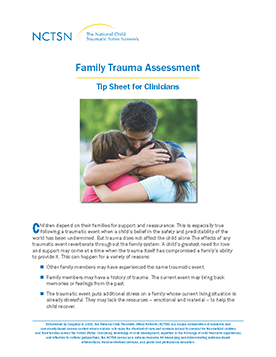
Family Trauma Assessment: Tips for Clinicians
Details the importance of a trauma assessment when families have experienced a trauma and guides clinicians in the assessment process.
The following resources on Screening and Assessment were developed by the NCTSN.

Details the importance of a trauma assessment when families have experienced a trauma and guides clinicians in the assessment process.

Features many of the top experts in the field speaking about engagement strategies, assessment, cultural and systems issues. This webinar series provides information on evidence-based interventions for families in which there has been known or suspected child physical abuse.
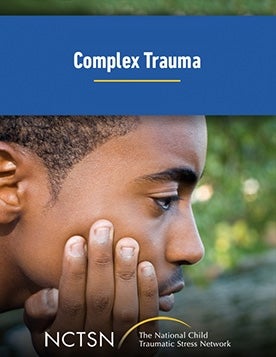
Describes the attachment-focused interventions of ITCT-C and ITCT-A. This webinar also discusses their use with children, adolescents, and their families.
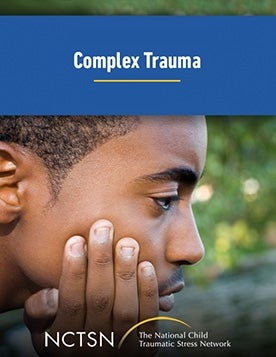
Discusses the Attachment, Self-Regulation, and Competency (ARC) model.
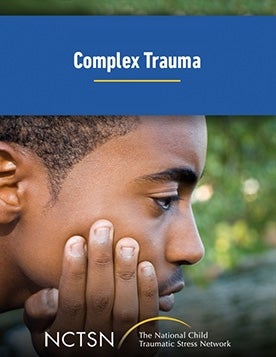
Discusses the Attachment, Self-Regulation, and Competency (ARC) model, a flexible intervention for children with complex trauma.

Discusses general and trauma-specific tools used to assess complex trauma in children and adolescents and how assessment guides treatment for this population.
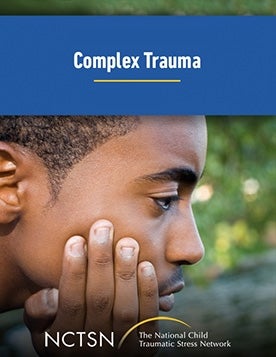
Acquaints clinicians and researchers with issues relevant to working with children who have experienced multiple traumatic events. This webinar series discusses the neurobiological underpinnings, assessment, and evidence-based treatment of complex trauma.
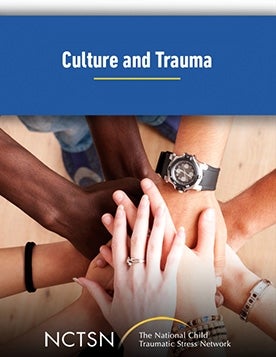
Discusses the special challenges of treating deaf and hard of hearing children, and the hearing children of deaf parents, who have been traumatized.
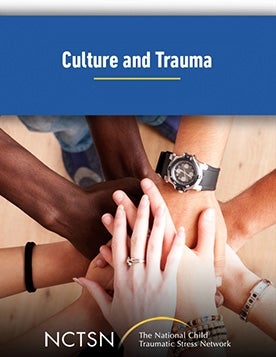
Stresses that organizations need to have a clearly defined, congruent set of values and principles, and demonstrate behaviors, attitudes, policies, structures, and practices that enable them to work effectively cross-culturally.
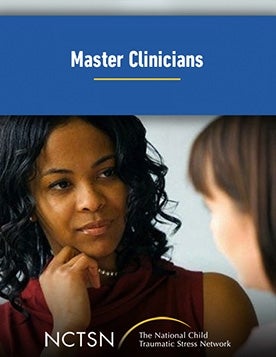
Outlines the major issues associated with the assessment of trauma in children and adolescents. This webinar includes psychometrics, comparison between the benefits and limitations of self-reporting and caretaker reports, specific targets for evaluation, and choice of assessment instruments.
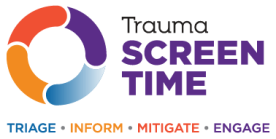
Provides staff in child-serving systems with best practices for trauma screening.

Offers training on the various components of Trauma-Focused Cognitive Behavioral Therapy.